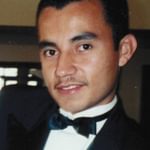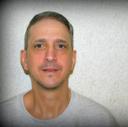
On March 24, 2025, the United States Supreme Court denied review of Areli Escobar’s (pictured) most recent appeal of his murder conviction, which argued for relief based on the fact that the Texas prosecutor had confessed error over the misleading use of inconclusive DNA evidence at trial. In his petition, Mr. Escobar’s legal team said Travis County prosecutors had relied heavily at trial on compromised evidence analyzed by the Austin Police Department’s crime laboratory. Additional DNA testing undertaken just days after Mr. Escobar’s 2011 trial and hidden from the defense until 2017 revealed that the DNA testing presented at his trial was ultimately inconclusive — a fact that Mr. Escobar’s jury never heard. Current Travis County District Attorney Jose Garza agreed with Mr. Escobar that the prosecution’s case was flawed and joined in asking the Court for a new trial. After initially remanding the case to the Texas Court of Criminal Appeals for reconsideration, the Court declined to intervene a second time and issued no written opinion explaining its reasoning.
“Nothing in today’s decision alters the fact that Areli Escobar was wrongfully convicted, and the Supreme Court’s decision does not make Areli Escobar’s wrongful conviction right[.]”
The Supreme Court’s decision not to intervene in Mr. Escobar’s case comes just a month after the Court vacated the conviction of Richard Glossip, who also enjoyed support from state officials in his request for a new trial. Both Mr. Escobar and Mr. Glossip asked the Court to establish a standard for overturning capital convictions when prosecutors no longer wish to defend the original case, but the justices declined to do so in both cases. In briefs filed in both cases, Texas Attorney General Ken Paxton opposed the requests for a new standard, arguing against automatically granting relief based on admission of prosecutorial error.
Mr. Escobar was convicted and sentenced to death in 2011 for the rape and murder of Bianca Maldonado in his apartment complex. No eyewitnesses linked him to the crime, and the prosecution’s case relied heavily on the Austin crime lab’s forensic testing of Mr. Escobar’s clothing and items found at the crime scene. Prosecutors also presented testimony from Mr. Escobar’s ex-girlfriend that she received a call in which she heard a woman repeatedly screaming for ten minutes while being raped — though she initially told investigators she heard Mr. Escobar having “consensual sex” with a woman.
After the Austin Police Department crime lab was shut down in 2016 for widespread problems related to evidence handling and testing, Mr. Escobar contested the lab results and sought relief in Texas courts. A state trial court ruled in his favor. The Travis County District Attorney’s office initially opposed Mr. Escobar’s request but changed its position after the evidence was presented to the trial court. The court found that the lab’s failures were widespread and included a “failure to adhere to scientifically acceptable practices[.]”
Despite the DA’s support of Mr. Escobar’s request, the TCCA denied him all relief. It also denied the prosecution’s motion for reconsideration. Mr. Escobar appealed, and in January 2023, the U.S. Supreme Court ruled in favor of Mr. Escobar, ordering the TCCA to reconsider his petition. Subsequently, in September 2023, the TCCA again ruled against Mr. Escobar, asserting that there was “no reasonable likelihood that the outcome would have changed if the false evidence had been replaced with accurate evidence.” This latest appeal was Mr. Escobar’s request to overturn the TCCA’s decision. DA Garza’s office indicated that it was “reviewing next steps” in Mr. Escobar’s case.
Dante Motley, Austin man remains on death row after U.S. Supreme Court denies second petition, Austin American-Statesman, March 26, 2025; Lawrence Hurley, Supreme Court rejects Texas death row inmate’s appeal over DNA evidence, NBC News, March 24, 2025. Feb 23, 2024, Petition for a writ of certiorari.


